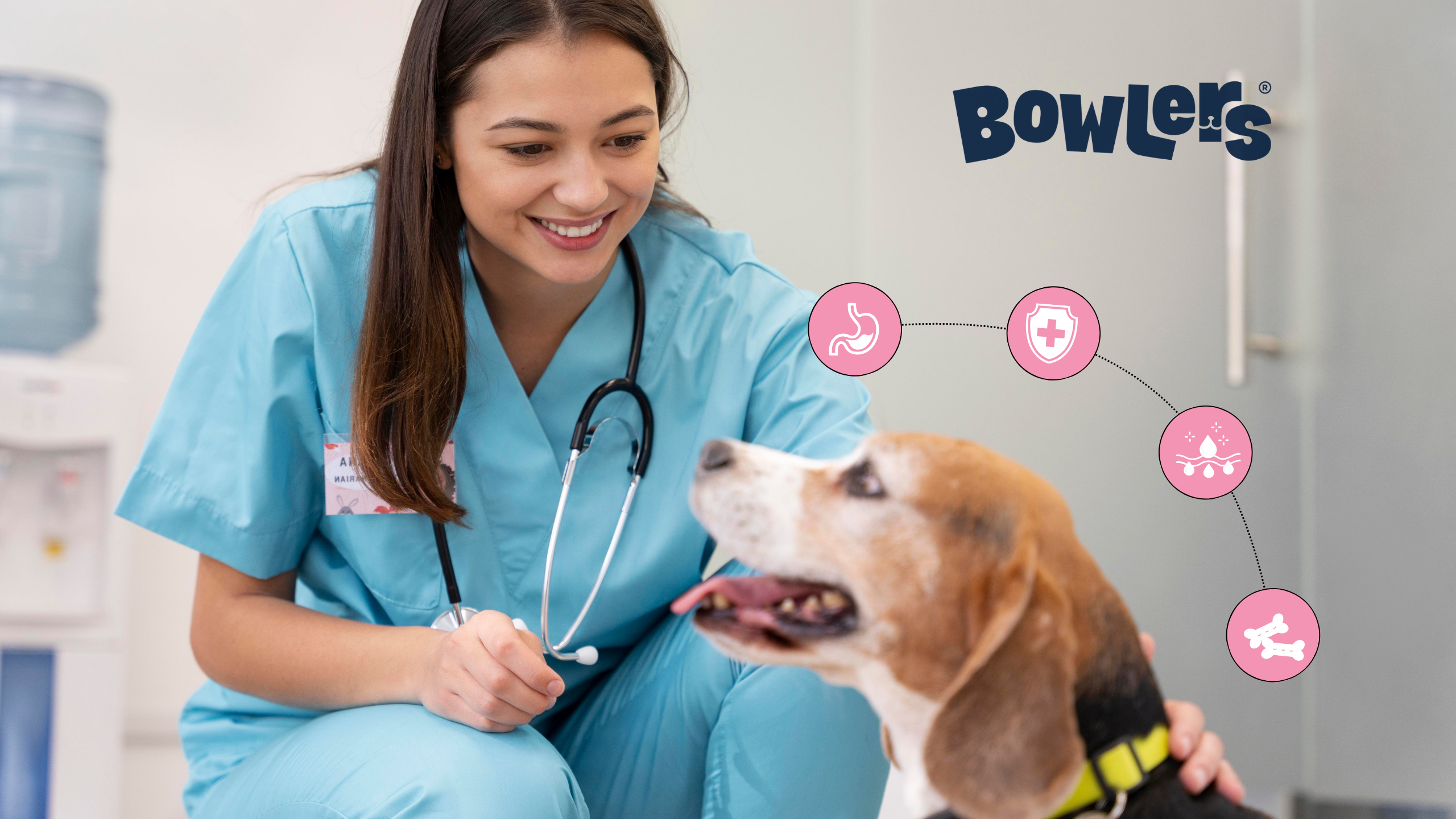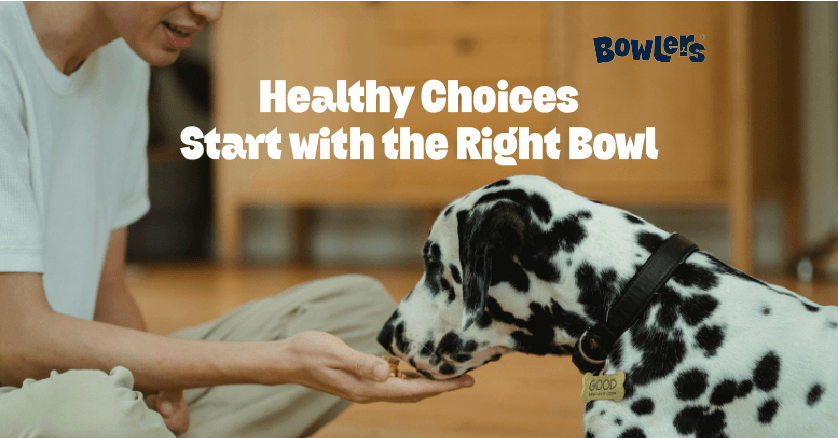Preventive Dog Healthcare: Keeping Your Dog Healthy for Life

As a pet parent, ensuring your dog’s well being goes far beyond feeding them a delicious meal. While proper nutrition forms the foundation of good health, dog healthcare is a holistic approach that includes routine checkups, vaccinations, dental care, parasite prevention, exercise, and early detection of disease. Preventive care helps your dog live a longer, happier, and healthier life, free from avoidable illnesses and discomfort.
At Bowlers, we believe that preventive dog healthcare is just as important as balanced nutrition. By adopting safe habits, staying informed, and working with your veterinarian, you can safeguard your dog’s health at every stage of life. In this guide, we’ll cover key aspects of preventive care, including dog health checkups, dog vaccination schedule, routine vet visits for dogs, and practical steps for dog disease prevention.
Why Preventive Dog Healthcare Matters
Just like humans, dogs benefit from early detection and consistent care. Addressing health concerns before they become major problems ensures your furry friend stays energetic, playful, and comfortable. Preventive care:
By integrating preventive care into your routine, you’re not just treating symptoms, you are investing in a lifetime of health.
The Cornerstones of Preventive Dog Healthcare
1. Routine Vet Visits for Dogs
Regular veterinary checkups are the backbone of preventive care. Even if your dog seems perfectly healthy, a vet can catch early signs of trouble that are invisible to the eye. For puppies and senior dogs, more frequent visits may be necessary.
What happens during a checkup?
For more on scheduling vet visits and what to expect, explore our in depth guide: How Often Should You Take Your Dog to the Vet? A Complete Guide.
2. Dog Vaccination Schedule
Vaccinations are critical for protecting your dog from deadly diseases. Your vet will tailor the dog vaccination schedule based on your dog’s age, environment, and lifestyle.
Common vaccinations include:
Following the correct schedule ensures long lasting immunity and prevents outbreaks.
3. Dental Care: More Than Just a Smile
Dental health is often overlooked but is crucial for overall well being. Poor oral hygiene can lead to gum infections, tooth loss, and even heart and kidney diseases.
How to practice dental care:
Learn the essentials in our related article: Dog Dental Care 101: Brushing, Chews, and Vet Visits.
4. Flea, Tick, and Worm Prevention
Parasites like fleas, ticks, and worms are more than annoyances—they can spread diseases and cause significant discomfort. Consistent parasite control is a must for preventive care.
Effective strategies include:
For a comprehensive approach, check out: Flea, Tick, and Worm Prevention: Protecting Your Dog Year Round.
5. Monitoring for Early Warning Signs
Spotting changes in behavior or appearance can prevent minor issues from becoming major health crises. Early signs of concern may include:
For more details, see our guide: 8 Signs of a Healthy Dog (and Early Warnings of Trouble).
6. Exercise and Mental Health
Preventive care also includes keeping your dog active and mentally stimulated. Exercise supports joint health, cardiovascular function, and weight control, while boredom can lead to anxiety and destructive behaviors.
How much exercise does your dog need?
For tailored recommendations, explore: How Much Exercise Does Your Dog Really Need?.
Safe Dog Diet Practices
A healthy diet complements preventive care by strengthening your dog’s immune system, supporting healthy organs, and maintaining optimal weight. Safe diet practices include:
Nutrition works hand in hand with other preventive measures, ensuring that your dog’s body has the tools it needs to fight off disease and recover from injury.
Putting It All Together: A Preventive Care Routine
A preventive care plan does not have to be complicated. Here is a sample routine to get you started:
Consistency is key, small daily actions lead to significant health benefits over time.
Preventive dog healthcare is about being proactive rather than reactive. By prioritizing routine vet visits for dogs, sticking to a proper dog vaccination schedule, maintaining oral hygiene, controlling parasites, and supporting mental and physical wellness, you can dramatically reduce your dog’s risk of disease.
At Bowlers, we believe that preventive care starts with informed choices and compassion. A healthy dog is an active, joyful companion, and providing that care every day is one of the most rewarding aspects of pet parenthood.


